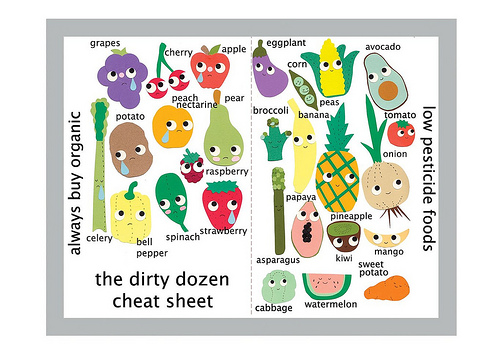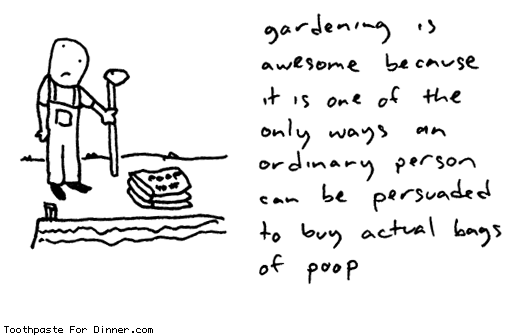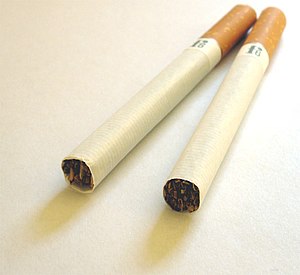 Image via Wikipedia
Image via Wikipedia
For many frogs, it's the worst of times.I love frogs and toads (evidenced by my frog tattoo). They are clearly indicator species. Saving them may just save us.
Take the Poison dart frog, for example--the most poisonous vertebrae in the world. These tiny frogs contain enough alkaloid poison in their skin to kill around fifteen people, or two adult elephants. Despite this deterrent, these frogs, native to the forests of South America, are being wiped out as their habitat slowly disappears. On the other end of the extreme, there's the Goliath frog of west Africa, the world's largest frog. Humans eating them or taking them as pets, not to mention habitat loss, has dwindled their numbers as well. So is the case for many frog species around the world, which, for various reasons, have seen their populations plummeting in the last few decades.
Intended to raise awareness of these dramatic frog declines, today is Save the Frogs Day. Although only in its second year, events to mark the occasion will be taking place around the world in twenty countries. According to founder Dr. Kerry Kriger, the popularity of Save the Frogs Day shows that people are beginning to understand the importance of preserving our amphibian friends.
This is one of the most significant environmental issues of the 21st century. Save The Frogs Day is all about people stepping up, getting involved, and taking action in their own community, and that's exactly what is happening.
![Reblog this post [with Zemanta]](http://img.zemanta.com/reblog_e.png?x-id=f48c7462-db8b-4c9e-bc76-310cae7ecd12)
![Reblog this post [with Zemanta]](http://img.zemanta.com/reblog_e.png?x-id=ed4f5ef9-6908-4f73-90d0-cbc0ce3a61dd)
![Reblog this post [with Zemanta]](http://img.zemanta.com/reblog_e.png?x-id=190074eb-383a-4d24-9c77-2d7e72065d6e)
![Reblog this post [with Zemanta]](http://img.zemanta.com/reblog_e.png?x-id=95229bbf-0cc0-4a0c-bdcc-96bf2635d206)

![Reblog this post [with Zemanta]](http://img.zemanta.com/reblog_e.png?x-id=be876a3e-a01a-4a33-aa5c-db06bbb683ef)
![Reblog this post [with Zemanta]](http://img.zemanta.com/reblog_e.png?x-id=a5c2301e-25f0-4816-bf6f-c50d7b36c626)
![Reblog this post [with Zemanta]](http://img.zemanta.com/reblog_e.png?x-id=7df8feda-c144-4b47-afcc-e5477c894d63)

![Reblog this post [with Zemanta]](http://img.zemanta.com/reblog_e.png?x-id=125ef5b5-57ac-4038-8f7a-ebd0524f8ae1)
![Reblog this post [with Zemanta]](http://img.zemanta.com/reblog_e.png?x-id=9dd63501-a5de-415d-a3f9-c2d048ac2b67)
![Reblog this post [with Zemanta]](http://img.zemanta.com/reblog_e.png?x-id=a99b64bf-281f-4270-8a38-68d39d479509)
![Reblog this post [with Zemanta]](http://img.zemanta.com/reblog_e.png?x-id=23e06259-7186-4de3-9f2e-e0f3571df502)

![Reblog this post [with Zemanta]](http://img.zemanta.com/reblog_e.png?x-id=bc647748-63dc-42b9-bf6d-1b3dd2f6cc51)
![Reblog this post [with Zemanta]](http://img.zemanta.com/reblog_e.png?x-id=c23979a8-9ba4-4a43-ac6f-4dd644f2ba5e)

![Reblog this post [with Zemanta]](http://img.zemanta.com/reblog_e.png?x-id=bd492476-9b26-4c06-8d8a-a52829aab625)
![Reblog this post [with Zemanta]](http://img.zemanta.com/reblog_e.png?x-id=97b533cc-b229-4aef-911c-ab1249129938)

![Reblog this post [with Zemanta]](http://img.zemanta.com/reblog_e.png?x-id=a6654f46-0d1f-4305-b8f1-b8db02f922b5)
![Reblog this post [with Zemanta]](http://img.zemanta.com/reblog_e.png?x-id=13d69f02-d087-4017-b056-656bd938a932)
![Reblog this post [with Zemanta]](http://img.zemanta.com/reblog_e.png?x-id=14317fce-8a98-42d1-9692-5a8e629485d1)
![Reblog this post [with Zemanta]](http://img.zemanta.com/reblog_e.png?x-id=a0f6fd78-c037-442a-9f2e-2dfaba6a23cf)

![Reblog this post [with Zemanta]](http://img.zemanta.com/reblog_e.png?x-id=23915eaa-2f0e-498b-a518-4c9e5e8274bb)

![Reblog this post [with Zemanta]](http://img.zemanta.com/reblog_e.png?x-id=95815c55-28c6-4402-b38d-b7e9f53aa3ad)
![Reblog this post [with Zemanta]](http://img.zemanta.com/reblog_e.png?x-id=5f7fdd1a-db7a-40c0-b51a-a4c888d4704d)
![Reblog this post [with Zemanta]](http://img.zemanta.com/reblog_e.png?x-id=f4c983f3-b129-41db-ac34-0aa6401f9df2)


![Reblog this post [with Zemanta]](http://img.zemanta.com/reblog_e.png?x-id=e23bf1df-c49c-4bf7-8554-afb5dd750855)